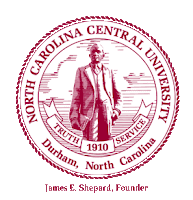March 12, 2012
Marybeth
Gasman, one of the nation’s leading experts on historically black colleges and
universities (HBCUs) and on issues of race in higher education, typically
writes and speaks about education policy and about her research on the
challenges involved in educating students of color. But in an appearance on
Saturday, March 10, at North Carolina Central University, she offered a dose of
encouragement on a more basic level to a gathering of college teachers and
administrators.
There
is really just one essential ingredient to successful teaching and learning,
she said: “You need to love teaching.”
Gasman
is a professor in the Graduate School of Education at the University of
Pennsylvania. Her Saturday speech was the keynote address at a conference of
the Interlink Alliance, a consortium of colleges and universities formed to
advance black student success and to promote training and development among the
professors and instructors who teach them.
Coming
toward the end of a two-day meeting focused on such earnest fare, Gasman’s
gentle reminder of the joys of teaching provided a welcome change of pace for
the audience of about 100 educators. Mixing humor and personal anecdote, she
urged her listeners to be accessible to students, to encourage critical
thinking, to set high expectations — and provide students with the resources to
meet those expectations.
Successful
teachers, she said, play to the strengths of their students. “It’s important to
come up with lots of ways for them to learn. Most aren’t strong in everything.”
In many of her own courses, she said, she offers students a menu, a range of
options for showing what they have learned, including research papers, book
review and point-of-view essays.
Good
teachers find ways to break down barriers between themselves and their
students, she said. “Acknowledge your own struggles. Teach students your life
lessons. Tell them how you got here.”
She
said she often describes to students her own roundabout path to an Ivy League
professorship, and how she grew up as one of 10 children on a farm on
Michigan’s rural Upper Peninsula. “My parents had an eighth-grade education,
and I was the only one in the family to go to college. I tell my students how I
ended up here: I had a teacher — a mentor in high school who encouraged me.
“So
talk about why you’re a professor! I tell my students all the time. I do this
because I want to change the world. I want to change higher education.”
The
role of mentor is a vital one, she added. “Don’t refuse mentoring — ever! When
someone asks you, do it. You might be the one who makes a big difference in a
student’s life, especially when you can connect them to someone you know or an
opportunity you’re aware of. And you can tell them, ‘I wouldn’t be able to do
this if I hadn’t had mentors of my own.’ ”
Successful teachers come in many forms with a
range of teaching styles, she said, but the good ones have one thing in common.
“They love teaching,” she said. “If you don’t, you owe it to yourself and your
students to get out of the profession.”
No comments:
Post a Comment